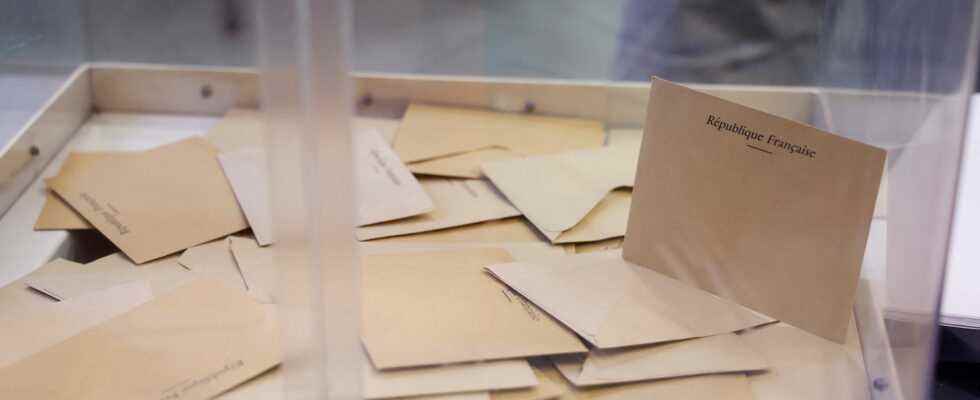Some 26.3 million French people have therefore still chosen not to choose, but these are not necessarily always the same as in the first round…
Like last week, more than one in two voters shunned the ballot box on Sunday during the second round of legislative elections marked by abstention still on the rise, between 53.5% and 54%, even if the 2017 record (57.36 %) is not beaten. Abstention nevertheless reached its second highest level for this election, up more than one point compared to the first round (52.49%), according to estimates from five polling institutes. Ipsos/Sopra Steria for FranceTV/RadioFrance/France24/RFI/LCP, Ifop for TF1/LCI and Elabe for BMTV/LEXPRESS/RMC assess final abstention at 54%, while OpinionWay for CNews and Europe1 measures it at 53.5% and Harris interactive for M6 and RTL at 53.9%, in any case below the record for a second round recorded in 2017 (57.36%).
“There was no start, analyzes the pollster (Ifop) Frédéric Dabi on LCI. There was however a dramatization of the election, this Nupes-Ensemble match! in almost 280 constituencies, this involvement of the president of the Republic, all that had only a very marginal effect” on the overall figure of participation. His colleague from Elabe Bernard Sananès is divided: “It’s not a good figure, but it’s not a new record, unlike 2017”.
Since 2002 and the reversal of the calendar which placed the legislative elections in the wake of the presidential election, the rule is that abstention increases between the two rounds, and it was verified again on Sunday, even if the increase this time is much more limited than in 2017 (up 6 points). “The legislative elections live in the shadow of the presidential election, the French say to themselves: but what is the point in a hyper-presidential system of convening us for a National Assembly whose role we do not really see, except to be the yes-yes-yes of the President of the Republic”, summarized on Europe 1 the political scientist Pascal Perrineau.
Strong disparities
Some 26.3 million French people have therefore still chosen not to choose, but these are not necessarily always the same as in the first round. Because beware of the optical effects of an overall figure at the national level which can mask significant differences from one constituency to another, where each of the 577 elections is played out, and movements in or out of the vote between the two towers. “The figure of 54% hides fairly strong disparities, it will be necessary to analyze the figures by constituency”, warns on BFMTV Bernard Sananès.
“Because of the Nupes/Ensemble/RN tripartition, what we have witnessed is constituency by constituency, the withdrawal from the game of a certain number of voters from the camp who were no longer present”, estimates the political scientist Vincent Tiberj. “And in an election with such a low turnout, these differential mobilization effects had a major impact on the result,” adds the Sciences Po Bordeaux professor.
“
Demonization strategy
“
“The abstention can partly be explained by the fact that many voters do not feel represented in the constituencies in the second round, and may feel distant from the candidates who remain”, confirms on Twitter the pollster Bruno Jeanbart (OpinionWay) . For Vincent Tiberj, “the strategy of demonizing Nupes by the President of the Republic and his government” also played a role in “making it more difficult to transfer votes from Ensemble to Nupes, but also from Nupes to Ensemble to block the RN”.
To this political abstention is added the “traditional” sociological abstention, that which mainly concerns young people and the working classes, who are more distant from politics. According to an Ipsos Sopra Steria poll on the profile of abstainers, 71% of 18-24 year olds, and 66% of 25-34 year olds shunned the polls on Sunday, against only 42% of 60-69 year olds and 34% of over 70s. year. And 67% of workers and 64% of employees abstained, against 54% of managers. But beware here too of hasty generalizations. “The popular bases of the RN are people who, a priori, are further from the vote, but a certain number of them have nevertheless moved and they have benefited from the erosion of the Republican front”, points out Vincent Tiberj.
